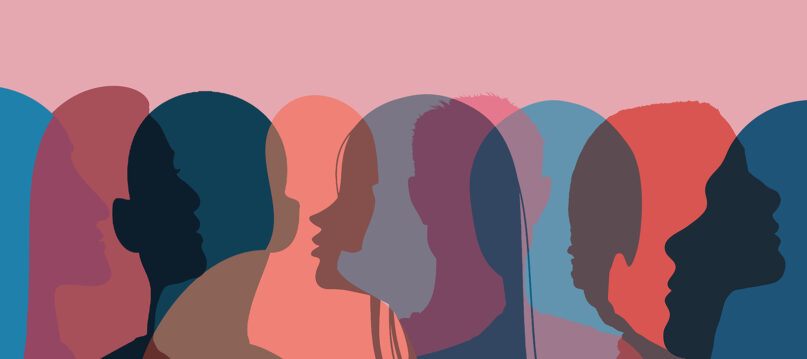(RNS) — The week after I came out, my mom pulled me out of my high school early to take me to meet a minister who claimed to walk with people toward freedom from homosexuality.
His name was Ricky Chelette, and he’s the executive director of Living Hope Ministries in Arlington, Texas. At the time, Ricky described Living Hope as an “ex-gay ministry,” a community that helped people find “healing” from their same-sex attractions.
At the age of 16, I had two options: leave my home and the only life I had ever known or try to become straight. Thus began my decade in Christian conversion therapy.
Through my mid-twenties, I met with Ricky for counseling every week, even though he was not a therapist and had no therapeutic training. I attended Living Hope’s support group on Thursday nights, which was like group therapy, where a volunteer with no therapeutic training counseled each of us in our efforts to heal from the “wounds” they believed caused us to be gay.
I went to Exodus International’s Freedom Conference every summer, Living Hope youth retreats every winter. I even lived in their residential program at the “Hope House” for a couple of years — all in an attempt to rid myself of my innate desire to love and be loved by other women.
As of today, 20 states have passed laws that ban conversion therapy for minors, thanks to the tireless work of organizations like the National Center for Lesbian Rights’ Born Perfect Campaign and The Trevor Project. Those laws protect youth under the age of 18 from being subjected to conversion therapy with a licensed therapist.
It’s a crucial step in the work to protect vulnerable queer youth, and I hope to see bans passed in every state across the country in the coming years. When the American Medical Association, the American Psychological Association and the American Academy of Pediatrics all agree a practice is harmful, there should be no question about whether youth are to be protected from being forced into it.
But as important as conversion therapy bans for minors are, those laws don’t protect youth who are taken to religious programs like Living Hope, which is the main place conversion therapy is happening. The Williams Institute of UCLA School of Law estimates that while 16,000 LGBT youth who are currently between the ages of 13-17 will receive conversion therapy from a licensed therapist before they turn 18, three times as many (57,000) will be subjected to it by religious or spiritual advisers. Conversion therapy bans don’t apply to those organizations because they’re protected by religious freedom laws.
If bans can’t stop it, then what will it take to get organizations like Living Hope — just one of countless organizations currently practicing conversion therapy in religious settings around the world — to stop harming minors?
First, parents of queer youth need to know their kids long for their approval and acceptance. I frequently hear from teens on Instagram and TikTok who are currently in conversion therapy primarily because they fear they’ll lose everyone they love if they stop trying to change. They tell me they’re riddled with anxiety and often self-harming, but they can’t cope with the thought of devastating their parents with the news that they can’t lead straight lives.
Parents love their children. I don’t think they would willfully send their kids to places they know would harm them. They likely don’t realize that in these pastoral counseling meetings with leaders like Ricky, their teenagers are asked to describe their sexual fantasies in detail and pressured to share with adults private matters like habits around masturbation and sexual exploration.
Surely, parents wouldn’t feel comfortable with an adult who has no professional training in counseling digging around in their teenager’s subconscious for potential “root causes” of their same-sex attractions and meddling in their sexual fantasies. These families need to know there are vibrant Christian communities that will enthusiastically welcome their queer kids. There are faithful pastors and priests who will affirm parents’ impulses to unconditionally love and delight in their children. It’s parents’ particular religious communities — not God and not the whole of the Christian church — that encourage them to make choices that harm their children.
Second, regardless of where churches land on the spectrum of affirmation for LGBTQ people, they can withdraw their financial support for any organizations that still practice conversion therapy on minors. We know youth who are subjected to conversion therapy report more than twice the rate of attempting suicide than those who are not.
Surely, the kindhearted people who attend churches like The Village Church and Watermark Church — trendy megachurches in North Dallas with multiple campuses — and the church-planting behemoth Antioch Church in Waco, where the HGTV celebrities Chip and Joanna Gaines attend, would not approve of their donations being used to support organizations that make youth twice as likely to attempt suicide. I personally know and love too many of the kindhearted Christians who attend these churches to believe they would willfully support a practice that leads to death — emotional death, relational death, spiritual death and in some cases physical death.
Finally, Christians need to know they can practice their faith with conviction and warmly embrace the LGBTQ people in their communities. We see this happening with Christian communities like the Mama Bears, where their faith has inspired them to create places of belonging for queer people. Christians can watch films like the new Netflix Original “Pray Away” that, through interviews with former leaders who now regret the years they spent promoting it, shows the harm conversion therapy causes.
They can listen to the stories of queer Christians like me by reading my memoir, “Outlove,” with openness and curiosity. And regardless of their beliefs, they can tell the LGBTQ people in their lives that God sees them, God loves them and they are a gift to those who know them.
Queer people in religious communities want to live with integrity. They don’t need to be managed or sent to anonymous recovery groups like Living Hope. They just need to be invited to live in the light among those they know and love.

Julie Rodgers. Courtesy photo
(Julie Rodgers is the author of “Outlove: A Queer Christian Survival Story” (Broadleaf Books). A writer, speaker and leader in the movement for full inclusion for LGBTQ people in Christian communities, she is featured in “Pray Away,” A Netflix Original presented by Ryan Murphy, a documentary about the “pray the gay away” movement. The views expressed in this commentary do not necessarily reflect those of Religion News Service.)





